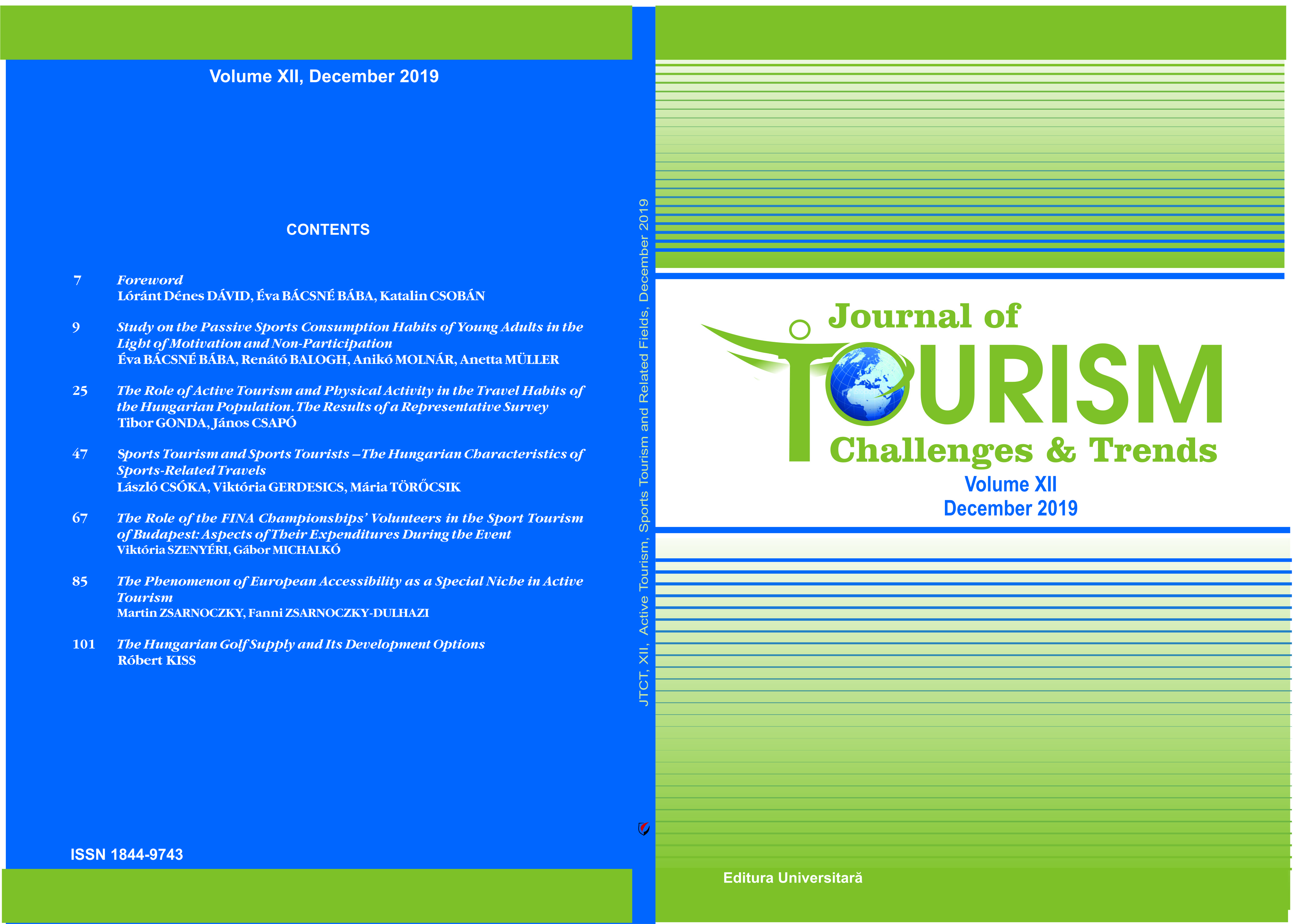Study on the Passive Sports Consumption Habits of Young Adults in the Light of Motivation and Non-Participation
Study on the Passive Sports Consumption Habits of Young Adults in the Light of Motivation and Non-Participation
Author(s): Éva Bácsné Bába, Renato Balogh, Anikó Molnár, Anetta MüllerSubject(s): Economy, National Economy, Business Economy / Management, Marketing / Advertising
Published by: Asociatia Romano-America a Managerilor de Proiect pentru Educatie si Cercetare
Keywords: Passive sports consumption; fans; spectator sports;
Summary/Abstract: With the increase in the number of sports events, the number of researches on this topic has also been on the rise with specific literature focusing on the effects that the passive sports consumers of mega sports events exercise on tourism. Other studies concentrate on the motivations of passive sports consumers, supporters. This research has been designed to look into the passive sports consumption habits of young adults with reliance on a questionnaire-based survey in order to reveal the motivational background of visiting sports events and the reasons for non-participation. Hypothesis testing has been conducted on visitors to events and non-participants. As a result of the study, it has been suggested that from among the defined influencing factors, the passive sports consumption by young Hungarian adults is affected to the largest extent by the program options with family/friends and the good atmosphere prevailing in the stadium. Therefore, if the organizers of sports events are able to satisfy these consumer demands with proper respect for the existing trends, the level of satisfaction can potentially be increased alongside the number of visitors to sports events. Among factors causing non-participation in these events or dissuading factors, it is the standards of play that exercise the strongest influence, followed by ticket prices and the behavior of the audience. For women, more important aspects are the availability of family programs and easy access to facilities, and the order of preference is similar for men, but in this latter case the success factor has a much weightier role. The results of the study are indicative of the management and marketing tasks associated with events and can give directions to the marketing communication strategies of sports service providers.
Journal: Journal of Tourism Challenges and Trends
- Issue Year: 12/2019
- Issue No: 1
- Page Range: 9-24
- Page Count: 11
- Language: English
- Content File-PDF

